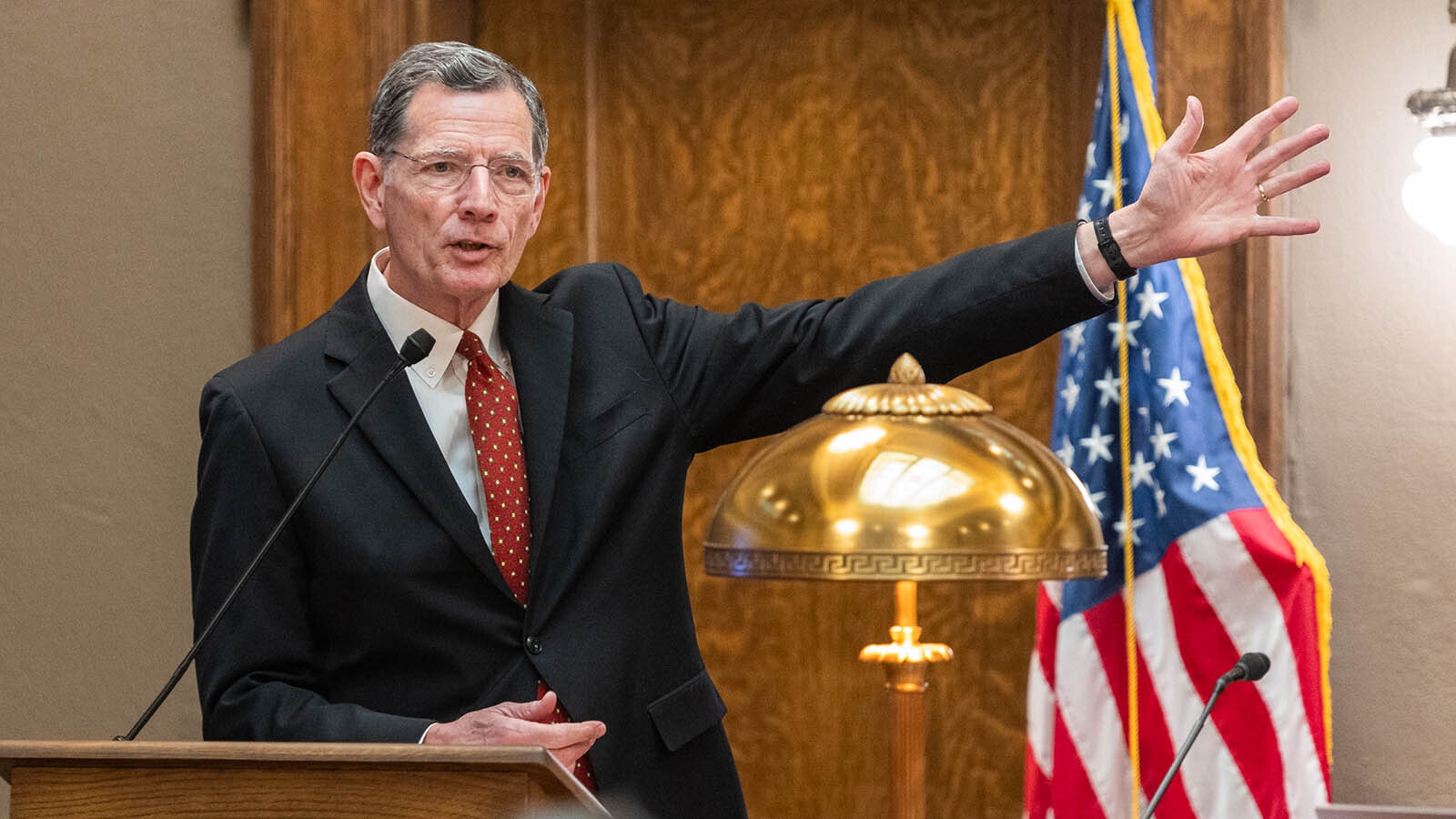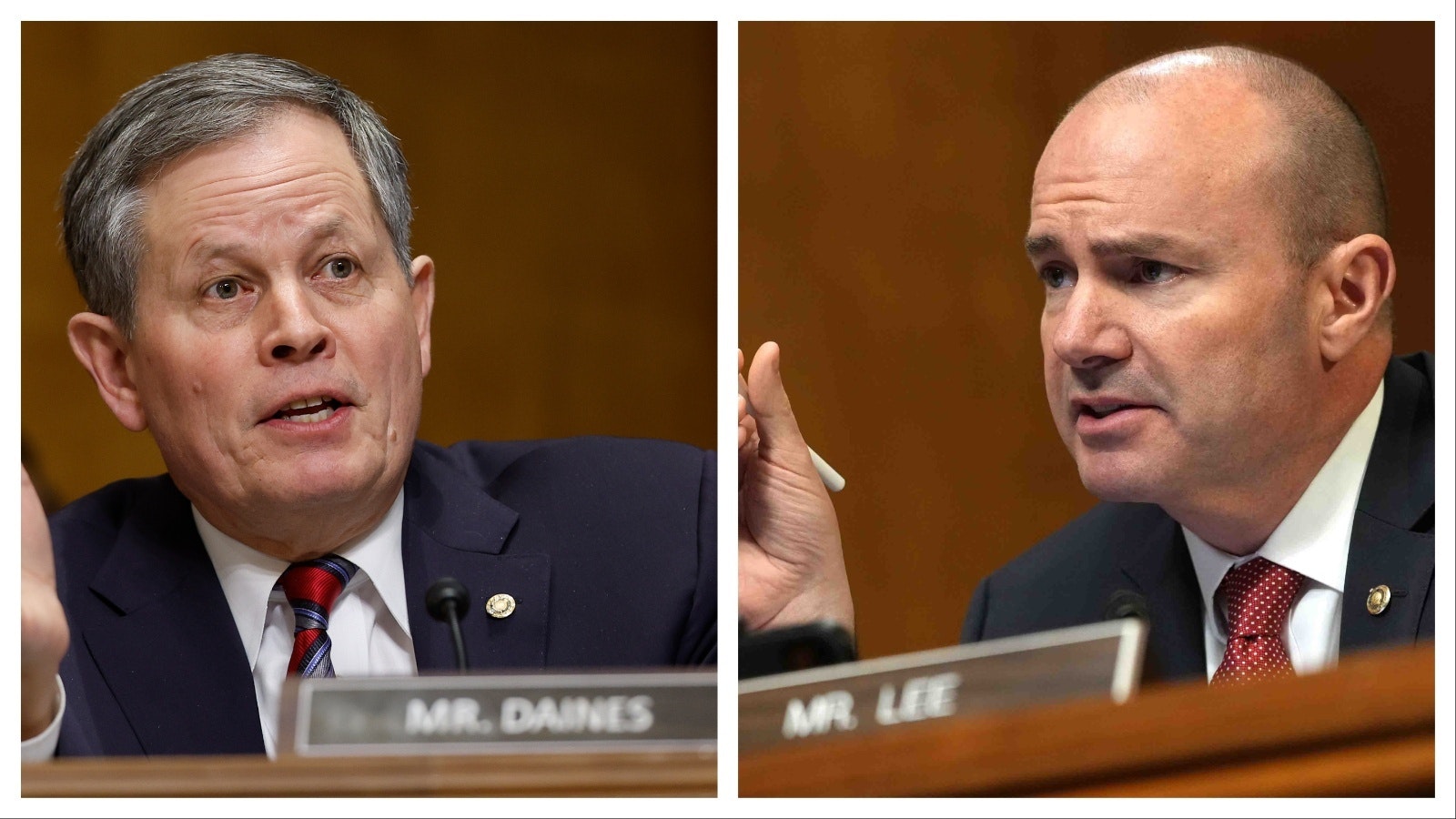A lack of trust pervades the relationship between the town of Jackson and some of its local residents who accuse the town of lying about its intentions and commitments for building affordable housing on Teton County Fairgrounds land.
Discontent had already been roiling for months before the State Loan and Investment Board last week approved a $1.25 million federal grant to help build the 48-unit affordable housing apartment complex known as the Flat Creek Apartments on city-owned fairgrounds land.
A handful of residents testified against the project to the board, claiming the city isn’t being truthful about the way it's handled the project. They’re concerned about the way the project was approved and that it could become luxury housing someday.
The lease between town and developers of the project has a 99-year term, “unless terminated sooner or extended pursuant to the provisions” of the contract, as written. If a new lessee were to take over Flat Creek, it would be locked to all the terms and conditions of the original lease. Although some of the terms of the lease can be amended, its length and use for low-income housing cannot.
Some may say the town is lying to them, but that’s just not happening, city officials say.
“While the ground lease can be amended, its terms cannot be amended,” Jackson Town Attorney Lea Colasuonno told Cowboy State Daily.
Lack Of Trust
Jackson resident Rebecca Bextel is a leader of a group called Save the Rodeo Grounds, which is opposed to the affordable housing project and dedicated to preserving the rodeo grounds in Jackson. The affordable housing project will be built on property that is technically considered part of the Teton County Fairgrounds, but located across the street from the main facility.
Bextel said the city shouldn’t have awarded the developer a free lease as there have been many instances of the town giving incentives to people to build or buy affordable housing projects that end up getting resold at a much higher market value down the road after the sunset clauses expire on those agreements.
“My greatest fear is that in 30 years this will become fair market housing,” she said. “If it’s fair market housing for 69 years, what good does that do for anybody?”
Jackson Vice Mayor Arne Jorgensen acknowledged this has happened in the past, but the town is no longer allowing it and has actively tried to buy up old properties with sunset clauses to prevent it from happening moving forward.
“We do not put those sunset clauses in any longer,” he said.
The lease makes clear at multiple points that the housing must remain low-income throughout its 99-year term. Bextel questions why the lease was made for this length of time if federal and state tax credits on it run out so much sooner.
Jorgensen said 99 years was chosen to add an additional layer of protection for the guarantee of affordable housing for as long as possible.
“We’re very focused on doing everything we can to protect the public’s investment,” he said.
After the federal and state requirements run out on the lease, it will be predicated on the terms of the ground lease itself that the property remains for low-income housing.
Who’s It Written For?
What also concerns Bextel is the way the lease was crafted.
Colasuonno said the lease was written by both the city and housing developers.
“You start with a draft document and then you work through changes as appropriate so both parties contribute to the document,” she said. “Obviously, both parties have to agree to it.”
Bextel said she finds this a massive conflict of interest and that Colasuonno should have been the only party working on it.
“We (town of Jackson) are supposed to be working for the people, the developer’s attorney is supposed to be working for the developer,” Bextel said. “The developer’s attorneys can’t work for both the developer and the people.”
As undeveloped land has grown scarce, the town of Jackson and Teton County have considered other uses for the grounds such as affordable housing for the local workforce to help alleviate a housing shortage. Flat Creek will house families making less than $66,000 a year.
The developers on the project, BlueLine Development and Snow King Partners, signed a lease with the town of Jackson to run the affordable housing project. Although the price of the lease is $1, the developers have invested millions in building the project. The town contributed $1 million in funding as well, according to the Jackson Hole News & Guide.
Bextel said the Jackson Town Council circumvented its own zoning rules to allow developers into the 99-year lease and build on the property. The city has said it was allowed to do this within its zoning rules.
The Wyoming Community Development Association contributed Low-Income Housing Tax Credits for the project worth $12 million and an additional $1.4 million in federal funds for the project.
What Are The Rules?
Additionally, the National Housing Trust Fund agreement with the Wyoming Community Development Association (WCDA) facilitated an $870,000 mortgage for the project that comes with a 30-year requirement to provide low-income housing.
The federal requirements state that the project must remain low-income housing for 30 years after the project completion. Then, the WCDA low-income grant eligibility will kick in, which will run for another 15 years.
“This document clearly states that there is the home period for the federal rules is 30 years and then WCDA said 15 years from the expiration of that period,” Colasuonno said.
Bextel and others have pointed to other WCDA guidelines that set out different timelines for affordable housing projects lasting only 30 years, not 45, but Colasuonno said these aren’t relevant as the town’s contract with the WCDA is legally binding.
Bextel, who has said in the past she is generally opposed to affordable housing, told Cowboy State Daily that once the federal and state regulations expire on the project, the developer or another could be given another free lease and the ability to access more federal credits to build more affordable housing on the same property.
“The developer will get another payday to do another in 30 years,” Bextel said.
Can It Be Revoked?
Colasuonno also said there is language in the lease that prevents it from being terminated at any time.
Although most of the termination language in the lease pertains to the lessee being terminated from the agreement, there is at least one place where it does state the terms of the lease are to last throughout its duration of 99 years.
The city attorney said there is nothing in the lease allowing for its total revocation in any scenario; conversely, nowhere in the document does it plainly say this is not allowed.
Leo Wolfson can be reached at leo@cowboystatedaily.com.





